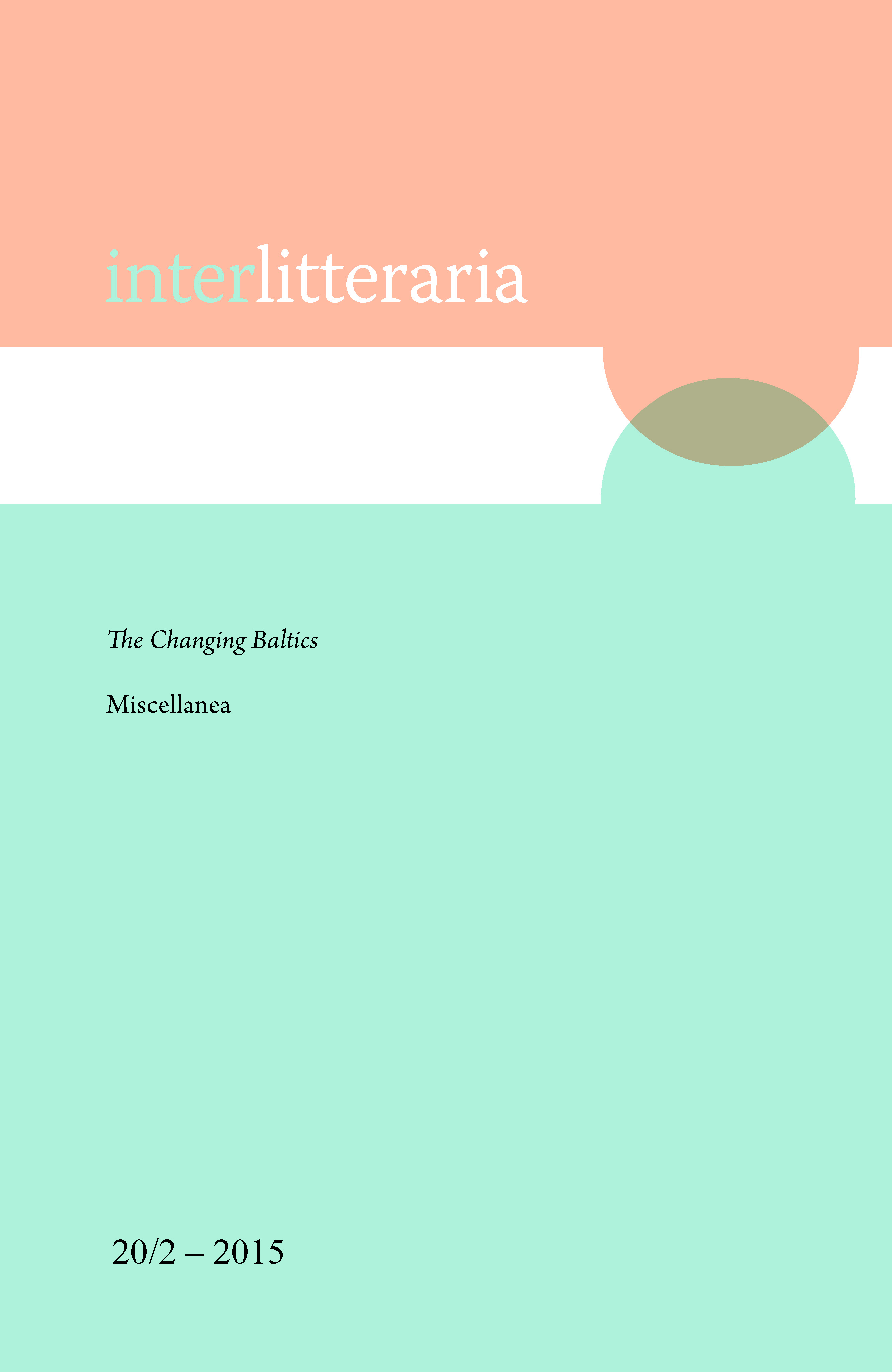Moscow-Petushki of Venedict Erofeev and Pulp Fiction of Quentin Tarantino in the Context of Postmodern Thinking
DOI:
https://doi.org/10.12697/IL.2015.20.2.13Keywords:
Quentin Tarantino, Venedict Erofeev, Moscow-Petushki, Pulp Fiction, postmodernismAbstract
The aim of the article is the attempt of reading two texts of culture, i.e. Moscow-Petushki of Venedict Erofeev and Pulp Fiction of Quentin Tarantino using the comparative approach that goes beyond the range of factual relationships, historical influences or similarities functioning in the plot. The purpose of the publication is to see both works, representing totally different semiotic systems (cinema and literature), in their mutual intertextual relationships for which the style of postmodernism constitutes the constant reference point. Most literary studies associate each of the chosen texts (but never both of them together) with postmodern thinking, therefore in my research I concentrate on the categories which are considered crucial for understanding postmodern thematic quests and the change in thinking which took place at the end of the 20th century. I try to find out similarities existing in the structures of two texts, aesthetic ideas and tools used to express them. As a result, the interpretation focuses in particular on representations of the body shown in the American movie and the Russian “poem in prose”, as well as on the problems of beauty, space and addictions, which constitute the fundamental subjects in these texts.Downloads
Download data is not yet available.
References
<div class="WordSection1"><p>Agamben, G. 2010. <em>Nagoś</em>ć. Trans. K. Żaboklicki. Warszawa: WAB.</p><p>Baran, B. 1992. <em>Postmodernizm</em>. Kraków: Inter Esse.</p><p>Bauman, Z. 1998. <em>Globalization: The Human Consequences</em>. New York: Columbia University Press.</p><p>Bilczewski, T. 2010. <em>„Theatrum</em><em> </em><em>Anatomicum”: komparatystyka i ciało</em>. – E. Szczęsna, E. Kasperski, eds. <em>Komparatystyka dzisiaj. Problemy teoretyczne</em>. Kraków: Universitas.</p></div><p>Charyn, J. 2006. <em>Raised</em><em> </em><em>by</em><em> </em><em>Wolves:</em><em> </em><em>the</em><em> </em><em>Turbulent Art and Times of Quentin Tarantino</em>. New York: Thunder’s Mouth Press.</p><p>Dawson, J. 1995. <em>Quentin Tarantino: The Cinema of Cool</em>. New York: Applause Books.</p><p>Epsztejn, M. 1994. Po karnawale, czyli Wieczny Wieniczka. – <em>Literatura na Świecie</em>, 7/8, 302–329.</p><p>Friedberg, A. 1994. <em>Window</em><em> </em><em>Shopping.</em><em> </em><em>Cinema</em><em> </em><em>and</em><em> </em><em>the</em><em> </em><em>Postmodern</em>. Berkeley-Los Angeles-London: University of California.</p><p>Gehlen, A. 1963. <em>Studien zur Anthropologie and Soziologie</em>. Neuwied: Luchterhand Verlag.</p><p>Geisser-Schnittmann, S. 1989. <em>Venedikt Erofeev „Moskva-Petushki”, ili „The rest is silence”</em>. Bern: Peter Lang. = Гайсер-Шнитман, С. 1989. <em>Венедикт</em><em> Ерофеев </em><em>„Москва-Петушки”,</em><em> </em><em>или</em><em> </em><em>„The rest is silence”</em>. Bern: Peter Lang.</p><p>Kinder, M. 2001. Violence American Style: The Narrative Orchestration of Violent attractions. – D.J. Slocum, ed. <em>Violence and American Cinema</em>. New York: Routledge.</p><p>Kuznetsov, S. 1997. Postmodernism in Russia. – H. Bertens, D. Fokkema, eds. <em>International Postmodernism</em>. Amsterdam-Philadelphia: J. Benjamins.</p><p>Miczka, T. 2013. <em>O śmierci na ekranie</em>, Katowice: Śląsk.</p><p>Ortega y Gasset, J. 1968. <em>The Dehumanization of Art and Other Essays on Art, Culture, and Literature</em>. Princeton: Princeton University Press.</p><p>Przybylski, R. 1999. Prześwit między przedmiotami<em>.</em><em> </em>– B. Kaniewska, S. Wysłouch, eds. <em>Człowiek i rzecz: o problemach reifikacji w literaturze, filozofii i sztuce</em>. Poznan: Wydawnictwo Naukowe UAM.</p><p>Shusterman, R. 2010. <em>Świadomość</em><em> </em><em>ciała.</em><em> </em><em>Dociekania</em><em> </em><em>z zakresu somaestetyki</em>. Kraków: Universitas.</p><p>Simmons, C. 1993. <em>Their Fathers’ Voice. Vassily Aksyonov, Venedikt Erofeev, Eduard Limonov and Sasha Sokolov</em>. New York: Peter Lang.</p><p>Supa, W. 2006. „Biblia” jako intertekst w poemacie Wieniedikta Jerofiejewa „Moskwa– Pietuszki”. – <em>Studia Wschodniosłowiańskie</em>, 6, 9–30.</p>Waligorska-Olejniczak, B. 2013. <em>Sacrum w drodze. “Moskwa-Pietuszki” Wieniedikta Jerofiejewa i „Pulp Fiction” Quentina Tarantino w kluczu montażowego czytania</em>. Poznan: Wydawnictwo Naukowe UAM.
Downloads
Published
2015-12-31
Issue
Section
Articles
License
The contents of Interlitteraria are published under CC BY-NC-ND licence.


